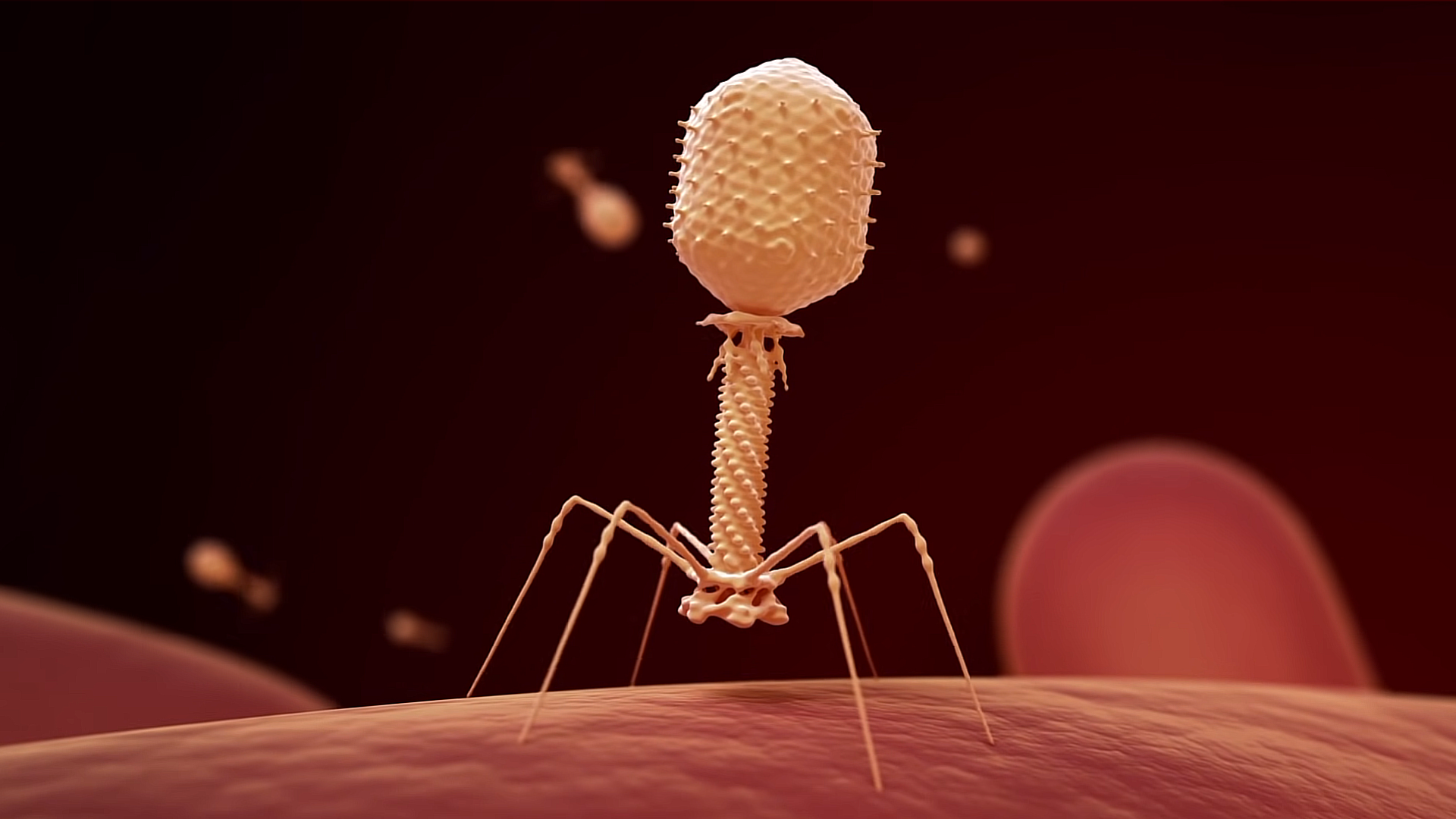https://sputnikglobe.com/20231030/human-cancer-cells-found-to-feast-on-bacteria-hunting-viruses-1114610720.html
Human Cancer Cells Found to ‘Feast’ on Bacteria-Hunting Viruses
Human Cancer Cells Found to ‘Feast’ on Bacteria-Hunting Viruses
Sputnik International
Scientists have found that some cells in the human body have found an unusual source of food: tiny, bacteria-hunting viruses called bacteriophages that exist throughout the body.
2023-10-30T21:12+0000
2023-10-30T21:12+0000
2023-10-30T21:12+0000
beyond politics
monash university
bacteria
biology
bacteriophages
food
https://cdn1.img.sputnikglobe.com/img/07e7/0a/1e/1114610564_0:0:1914:1077_1920x0_80_0_0_497e2e56b7849c1cf8657bf6d748814b.png
The human body is its own biosphere, home to billions of creatures including bacteria, viruses, and single-celled organisms, all of which can have harmful, beneficial, or even neutral effects on how our bodies work. Until recently, scientists had assumed that bacteriophages, a type of virus that eats bacteria, simply existed in our bodies and didn’t interact with them much.Barr is one of the co-authors of an article that was recently published in PLOS Biology, a peer-reviewed journal published by the Public Library of Science, titled: “Mammalian cells internalize bacteriophages and use them as a resource to enhance cellular growth and survival.”Their discovery arose from a test in which they placed cancer cells from humans and from dogs into an environment flush with a common bacteriophage, T4, which loves to eat E. coli bacteria. While the scientists were looking to see which proteins the cells were making in response to the phages, they found that rather than defending themselves from the bacteria, the cells were instead showing signs of growth, including preparing to divide.Bacteriophages are notorious bacteria-hunters and have been used for decades as alternatives to antibiotics, with the practice of bacteriophage therapy being extensively used in the Soviet Union. Only in the 21st century has Western medicine caught up, discovering the benefits of bacteriophages in controlling bacterial infections not only in humans, but in other materials as well, including food.However, the scientists noted that lab-cultured cells are not necessarily the same as those in real, living creatures, so they hope to test how those cells react to bacteriophages next.
https://sputnikglobe.com/20230311/revived-ancient-zombie-virus-from-siberian-permafrost-hasnt-lost-its-touch-study-warns-1108276690.html
Sputnik International
feedback@sputniknews.com
+74956456601
MIA „Rosiya Segodnya“
2023
News
en_EN
Sputnik International
feedback@sputniknews.com
+74956456601
MIA „Rosiya Segodnya“
Sputnik International
feedback@sputniknews.com
+74956456601
MIA „Rosiya Segodnya“
bacteriophages; bacteria hunting; plos biology; science
bacteriophages; bacteria hunting; plos biology; science
Human Cancer Cells Found to ‘Feast’ on Bacteria-Hunting Viruses
Scientists have found that some cells in the human body have found an unusual source of food: tiny, bacteria-hunting viruses called bacteriophages that exist throughout the body.
The human body is its own biosphere, home to billions of creatures including bacteria, viruses, and single-celled organisms, all of which can have harmful, beneficial, or even neutral effects on how our bodies work. Until recently, scientists had assumed that bacteriophages, a type of virus that eats bacteria, simply existed in our bodies and didn’t interact with them much.
“You’re told that [phages] just do not interact with mammalian cells,” said microbiologist Jeremy Barr of Monash University in Melbourne, Australia. “And that’s completely false. They do.”
Barr is one of the co-authors of
an article that was recently published in PLOS Biology, a peer-reviewed journal published by the Public Library of Science, titled: “Mammalian cells internalize bacteriophages and use them as a resource to enhance cellular growth and survival.”
Their discovery arose from a test in which they placed cancer cells from humans and from dogs into an environment flush with a common bacteriophage, T4, which loves to eat E. coli bacteria. While the scientists were looking to see which proteins the cells were making in response to the phages, they found that rather than defending themselves from the bacteria, the cells were instead showing signs of growth, including preparing to divide.
“Cells that had been given phage were actually growing at a faster rate,” Barr said. This suggests that “they’re using the phages as a food source.”
Bacteriophages are notorious bacteria-hunters and have been used for decades as alternatives to antibiotics, with the practice of bacteriophage therapy being
extensively used in the Soviet Union.
Only in the 21st century has Western medicine caught up, discovering the benefits of bacteriophages in controlling bacterial infections not only in humans, but in other materials as well, including food.
However, the scientists noted that lab-cultured cells are not necessarily the same as those in real, living creatures, so they hope to test how those cells react to bacteriophages next.





